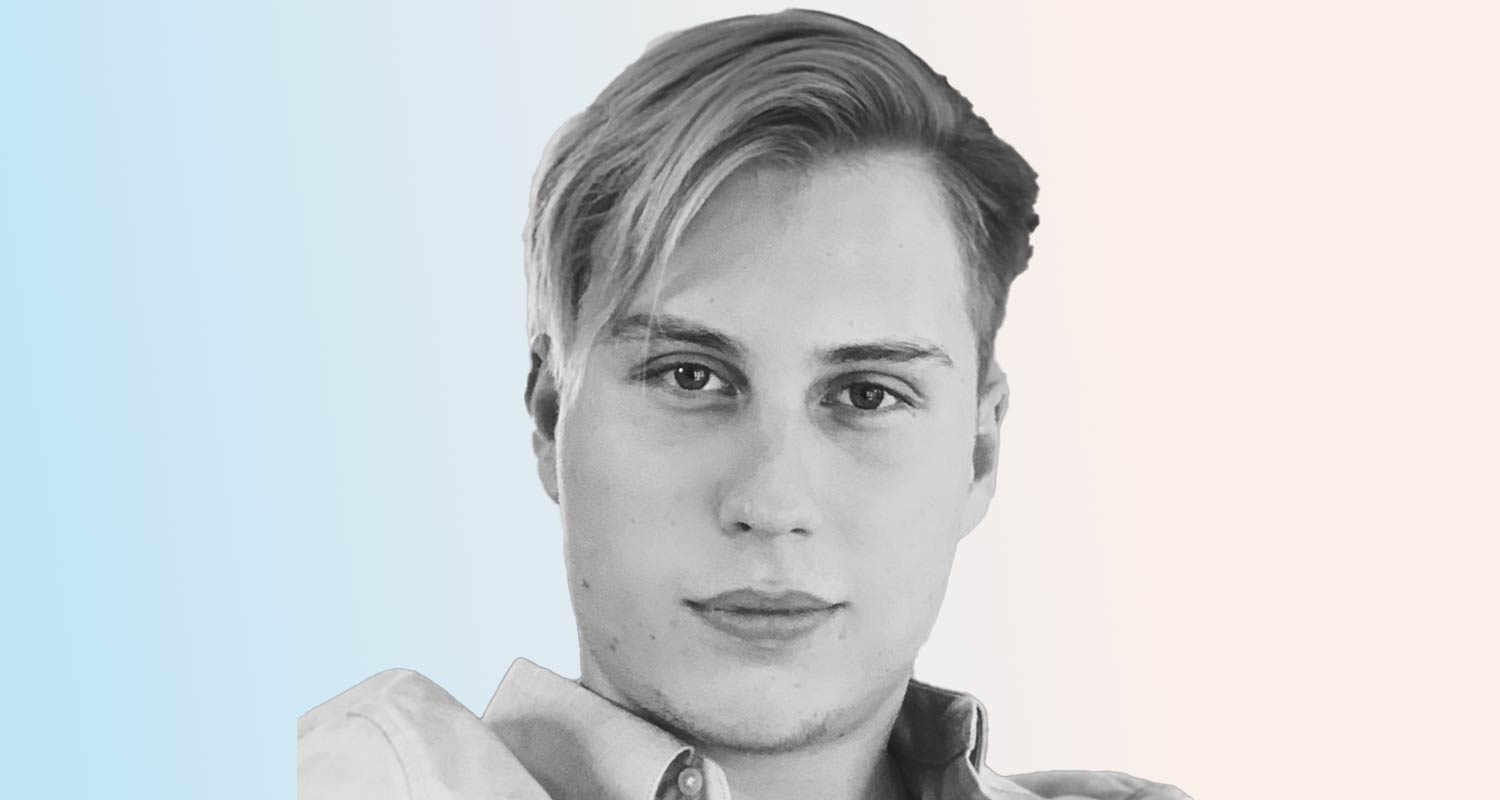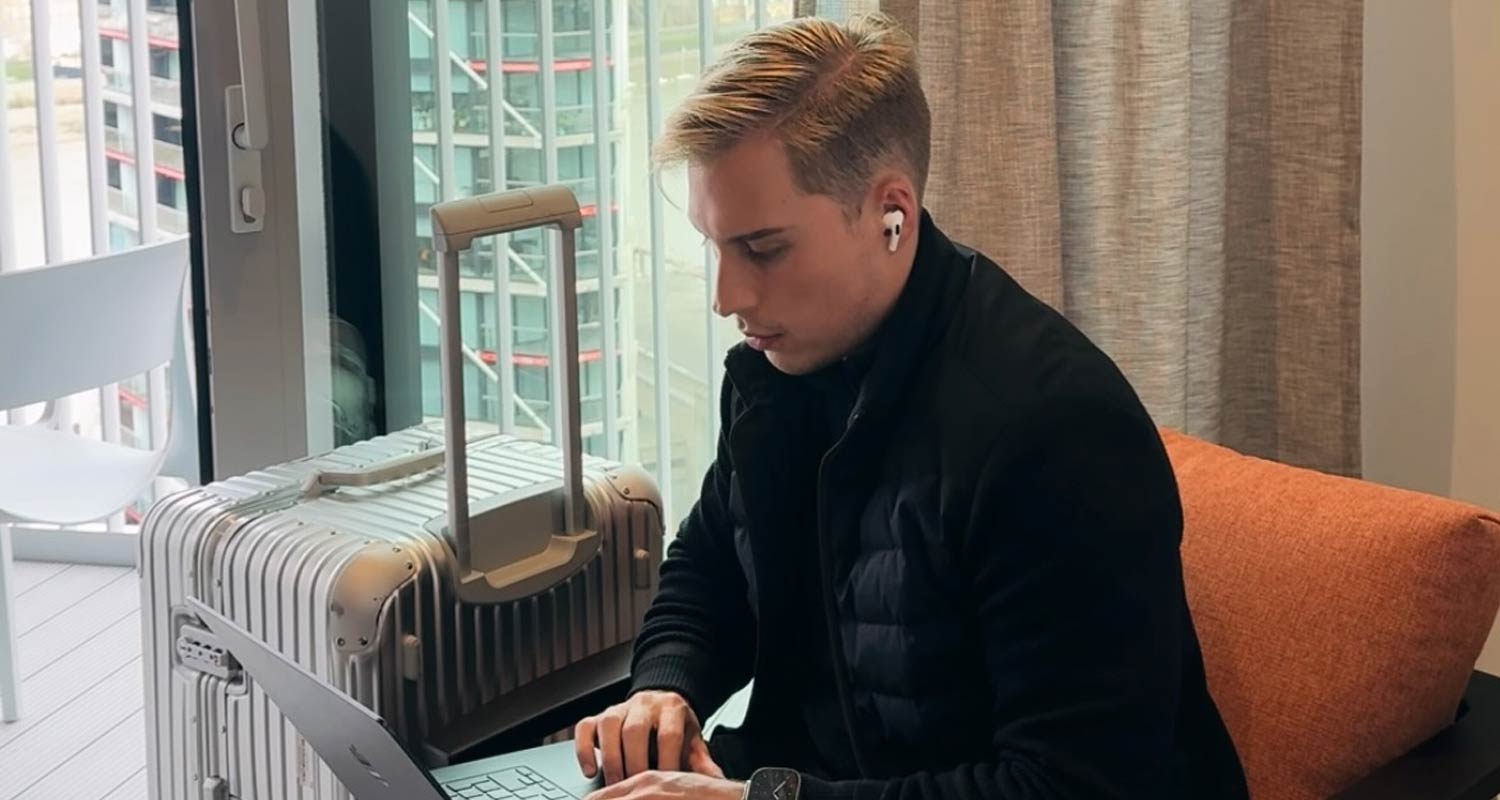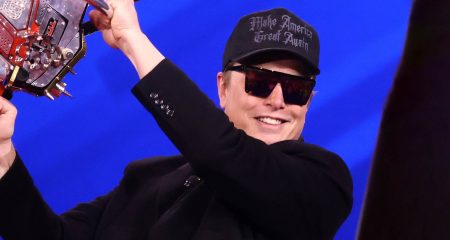
A Boksburg-raised tech enthusiast, who has secured angel funding from well-known South African businessman Rob Hersov, is headed to Silicon Valley early next year to build Seeking Sigma, a start-up aimed at simplifying sales calls using AI.
Courtne Marland, who considered neurosurgery as a career before taking up coding and studying applied mathematics and economics at The Open University in the UK, told TechCentral in an interview this week that there’s a big opportunity to use artificial intelligence tools to turbocharge the productivity of people involved in sales.
And now he’s moving to the other side of the world – to the epicentre of the tech world – to build it. He’s only 23 years old.
Marland, who built and published half a dozen mobile apps – most of them before the age of 17 – and who started a marketing agency helping companies with their online advertising (he later sold it), said he had always wanted to get back into software.
Heavy hitters who are backing Seeking Sigma include Hersov and Barb Morgan, chief product and technology officer at Temenos, the banking software giant. Other backers include well-known YouTuber Iman Gadzhi, who has 5.3 million subscribers on the Google-owned web video platform, and Justin Schultz, a former Dropbox executive who now heads up growth at workplace automation software company Zapier.
“We launched our MVP (minimal viable product) six weeks ago and it already has a long waiting list,” Marland said. Seeking Sigma will have senior engineers in the US office – the company is actively hiring – and a development and support team in Cape Town.
Conversation conversion
He said Hersov will assist Seeking Sigma in cracking the enterprise market, where he has significant reach, while Gadzhi, an “influencer” will assist in reaching the small and medium business segment.
“The vision for the company is to be world’s first conversation conversion platform. Our copilot joins meetings and ingests e-mails and messaging. It goes through an engine and creates a ‘sigma’ that contains everything someone needs to make a decision – how long, how much, the stakeholders, the deliverables and so on, all AI generated,” Marland said.
Read: R300-million seed fund launched for tech start-ups in SA
“Human salespeople spend hours doing this every time. Now imagine the AI listening to every conversation, generating everything that is required, and highly personalised using brand logos and so on, and which changes depending on who is viewing it.
“The copilot watches every interaction in a particular sigma. It’ll tell you why a deal is not moving forward, for example, or if someone is not engaged with a proposal. It also watches the performance of all members of a sales team to ensure underperforming salespeople can do better.”
 Marland said the technology will allow one salesperson to achieve the output that required five people previously, allowing the sales team to focus on more value-adding work. “Humans should not spend hours every day rewriting sales pitches. It’s a waste of human potential.”
Marland said the technology will allow one salesperson to achieve the output that required five people previously, allowing the sales team to focus on more value-adding work. “Humans should not spend hours every day rewriting sales pitches. It’s a waste of human potential.”
The plan, in time, is to expand the solution beyond sales to other teams, with human resources and hiring a likely next focus area.
“Longer term, we want to be a digital representation of conversations, updated in real time and always analysed. AI unlocks this.”
Much of the platform has been built using Claude, the family of AI language models developed by Anthropic, a competitor to OpenAI that enjoys the financial backing of Amazon.com (it has invested US$8-billion to date). Seeking Sigma is also utilising Llama, from Meta Platforms, for some of its AI workloads.
Marland said Seeking Sigma will not seek further angel funding, and will likely seek to join a business accelerator early next year at which time he expects the company’s valuation to be in the region of $20-million. “We are also looking at a seed round next year, and we believe a $40-million valuation is achievable by later next year.”
All about AI
He said finding AI talent to join the team is “exceptionally difficult” given the demand for these skills worldwide. “It’s very expensive in the AI space, and [the cost of] skills are highly inflated. But we have an exceptional team already, and [finding additional talent is] the reason we are moving to the US,” he said.
“We couldn’t build this from Cape Town easily. South Africans are very good, and I love hiring South Africans – they work hard. But part of our rationale [in moving to Silicon Valley] is it’s where the trends are. Every conversation in Silicon Valley is about AI. You just don’t get that in Cape Town.” — (c) 2024 NewsCentral Media
Get breaking news from TechCentral on WhatsApp. Sign up here
Don’t miss:
Cardware Wallet – the start-up building a hardware crypto wallet in South Africa


